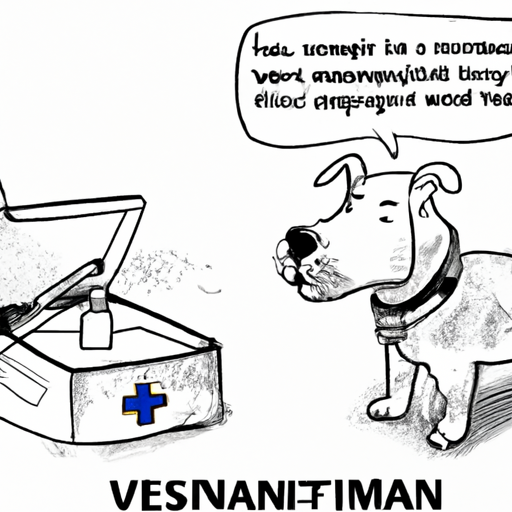Identifying Ant Bites on Dogs
Firstly, it’s crucial to understand what you’re dealing with. Ant bites, while small, can cause significant discomfort and irritation for your beloved four-legged friend. The typical signs include:
- Red, swollen spots
- Constant scratching or biting at one area
- Agitation or restlessness
These signs might indicate that your dog has fallen victim to an ant attack. However, remember, other parasites and infections can also cause similar symptoms, so it’s always best to consult with a vet if unsure.
Immediate Response: Alleviating the Pain
Your immediate response can significantly affect your dog’s comfort and the progression of the bite. Here’s what you need to do:
- Soothe the area: Use a cold compress to alleviate the initial pain and swelling. Wrap an ice pack in a thin towel and press against the bitten area gently.
- Clean the area: Use a mild antiseptic soap to clean the bite and prevent any infection.
Your dog might be scared or agitated, so remember to offer comfort and reassurance throughout this process.
Long-Term Care: Preventing Infection
In the days following the bite, it’s important to monitor the affected area for any signs of infection. Look for:
- Increased swelling
- Pus or discharge
- Unusual smell
If you notice any of these signs, contact your vet immediately. To prevent infection, apply a topical antibiotic ointment to the bite as per your vet’s instructions.
Protecting Your Dog: Preventive Measures
Preventing ant bites is as important as treating them. Here are some steps to help protect your dog:
- Regularly inspect your dog’s favorite lounging areas for ant hills or nests.
- Avoid walking your dog in areas known for high ant populations.
- Consider using pet-friendly ant repellents around your home.
Remember, prevention is always better than cure!
Know Your Ants: Different Ants, Different Bites
Not all ants are created equal, and neither are their bites. Some ants, like fire ants, can cause severe reactions in dogs. Here’s a quick comparison:
| Ant Type | Bite Severity | Common Symptoms |
|---|---|---|
| Fire Ant | High | Intense pain, swelling, blistering |
| Carpenter Ant | Moderate | Pain, minor swelling |
| Sugar Ant | Low | Minor itching, slight redness |
Frequently Asked Questions
Q: Can ant bites cause allergic reactions in dogs?
A: Yes, some dogs might experience an allergic reaction to ant bites. If your dog shows signs of difficulty breathing, vomiting, or excessive swelling, contact your vet immediately.
Q: How can I stop my dog from scratching the bite?
A: Use an Elizabethan collar or similar device to prevent your dog from scratching or biting the area. If the scratching continues, consult your vet.
Q: How long does it take for an ant bite to heal?
A: It can take a few days to a week for an ant bite to heal fully. However, if the bite doesn’t improve or worsens after a few days, consult with your vet.
Remember, as a caregiver, your dog’s health and comfort are your responsibility. Always keep a watchful eye on their behavior and physical condition, and don’t hesitate to seek professional help when in doubt.



